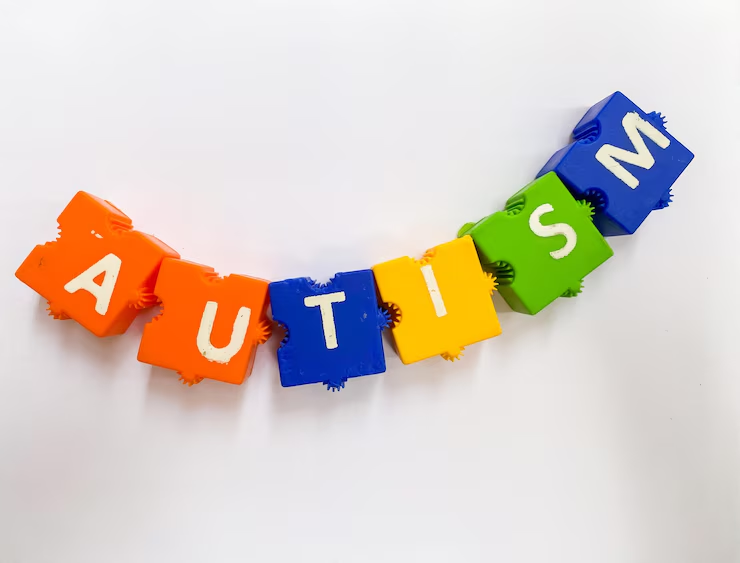Understanding Autism (Autism Spectrum Disorder): Causes, Symptoms, Treatments, and Support
Autism, or Autism Spectrum Disorder (ASD), is a complex neurodevelopmental condition that affects millions of people worldwide. While the exact causes of autism are not fully understood, it is widely recognized that it impacts communication, social interaction, and behavior. This lifelong condition manifests in different ways, varying greatly in severity and symptoms. In this comprehensive guide, we will explore what autism is, its potential causes, key symptoms, available treatments, and the best ways to support individuals with autism.

What is autism?
Autism, officially referred to as Autism Spectrum Disorder (ASD), is a neurodevelopmental disorder that primarily affects three areas: communication, social interaction, and behavior. It is classified as a “spectrum” because it impacts each individual differently, with a broad range of symptoms and severity levels. As a result, individuals with autism can have unique abilities and challenges.
Causes of Autism
The exact causes of autism remain unclear, but researchers agree that a combination of genetic and environmental factors likely contributes to its development. Certain genes may predispose an individual’s brain to autism, but no single cause has been identified. Additionally, environmental factors such as prenatal complications or birth-related issues have been proposed, though no definitive triggers have been pinpointed.
Autism is typically diagnosed in early childhood, although it can also be diagnosed in adulthood when symptoms are subtler or mistaken for other conditions.
Symptoms of Autism
The symptoms of autism vary widely from person to person, but some common signs include:

1. Social Interaction Difficulties
Individuals with autism often have trouble understanding or responding to non-verbal social cues such as body language, facial expressions, or eye contact. This can lead to challenges in establishing and maintaining social relationships, as well as understanding social norms in different situations.
2. Repetitive Behaviors
Repetitive behaviors are common in autism, including body movements (such as rocking or hand-flapping) or the repetition of words and phrases. These behaviors may help individuals with autism manage stress, anxiety, or sensory overload and can serve as a coping mechanism in unfamiliar or overwhelming situations.
3. Communication Challenges
People with autism may experience difficulty with both verbal and non-verbal communication. Some individuals may be non-verbal, while others might struggle with language comprehension, articulation, or understanding figurative language like idioms, metaphors, or sarcasm.
4. Sensory Sensitivities
Individuals with autism often have heightened or diminished sensitivities to sensory stimuli. They might be overly sensitive to certain sounds, textures, lights, or smells. Conversely, some people may have difficulty processing sensory input and may seek out intense sensory experiences.
5. Limited Interests
Many individuals with autism have focused or restricted interests and may engage in deep, sometimes obsessive, knowledge about specific subjects. While this can lead to impressive expertise, it can also limit their engagement in other activities or social interactions.
Treatment Options for Autism
While there is no cure for autism, various therapies and interventions can help individuals manage their symptoms and improve their quality of life. Treatment plans are highly individualized, depending on the person’s unique strengths and needs. Some of the most common treatments for autism include:
1. Behavioral Therapy
Behavioral therapy is one of the most widely used interventions for autism. It focuses on teaching social skills, communication skills, and coping strategies. Applied Behavior Analysis (ABA) is a well-known approach that has been shown to be effective in improving behavior and social skills.
2. Speech Therapy
Speech therapy can help individuals with autism improve their language skills, including both receptive and expressive language. This therapy can also address difficulties with articulation and the use of non-verbal communication methods, such as sign language or augmentative communication devices.
3. Occupational Therapy
Occupational therapy (OT) helps individuals with autism develop the skills needed for daily living, such as dressing, eating, and using the bathroom. OT also focuses on improving fine motor skills, which can be especially beneficial for tasks that require hand-eye coordination.
4. Medication
Although there is no medication that can cure autism, certain medications can help manage symptoms, such as anxiety, depression, or irritability. Medications may also be prescribed to help with co-occurring conditions, such as attention-deficit hyperactivity disorder (ADHD).

Supporting Individuals with Autism
Supporting individuals with autism requires patience, understanding, and acceptance. It is important to recognize that each person with autism is unique, and their strengths and challenges will vary. Here are some key ways to provide effective support for those with autism:
1. Educate Yourself About Autism
Learning more about autism and the challenges faced by individuals on the spectrum can help you better understand their needs and improve your interactions with them. Educating yourself about autism can also help reduce misunderstandings and create a more inclusive environment.
2. Be Patient
People with autism may take longer to process information, understand social cues, or respond to questions. It’s essential to be patient and give them the time and space they need to express themselves and communicate effectively.
3. Use Clear and Direct Language
Individuals with autism often struggle with abstract language or idiomatic expressions. Using clear, concise, and direct language can help ensure better communication and reduce confusion. Visual supports, such as pictures or written instructions, can also be helpful.
4. Focus on Strengths
While autism can present challenges, many individuals on the spectrum have remarkable strengths, such as attention to detail, problem-solving abilities, or exceptional memory in specific areas. Focusing on these strengths can help build self-esteem and confidence.
5. Create a Structured Environment
Many individuals with autism thrive in structured environments with predictable routines. Providing a consistent daily schedule, clear expectations, and minimal sensory distractions can help reduce anxiety and promote better behavior.

Conclusion: The Importance of Understanding and Support
Autism is a complex condition that affects millions of people worldwide. Although there is no cure, early diagnosis, tailored therapies, and a supportive environment can significantly improve the quality of life for individuals with autism. By understanding the diverse needs of people with autism and offering appropriate support, we can help them navigate daily life more effectively, fostering their independence, growth, and well-being.
Whether you are a family member, educator, or healthcare provider, your knowledge, patience, and acceptance can make a profound difference in the life of someone with autism. As we continue to improve our understanding of autism spectrum disorder, it’s important to advocate for greater awareness and acceptance to create an inclusive world for all.





